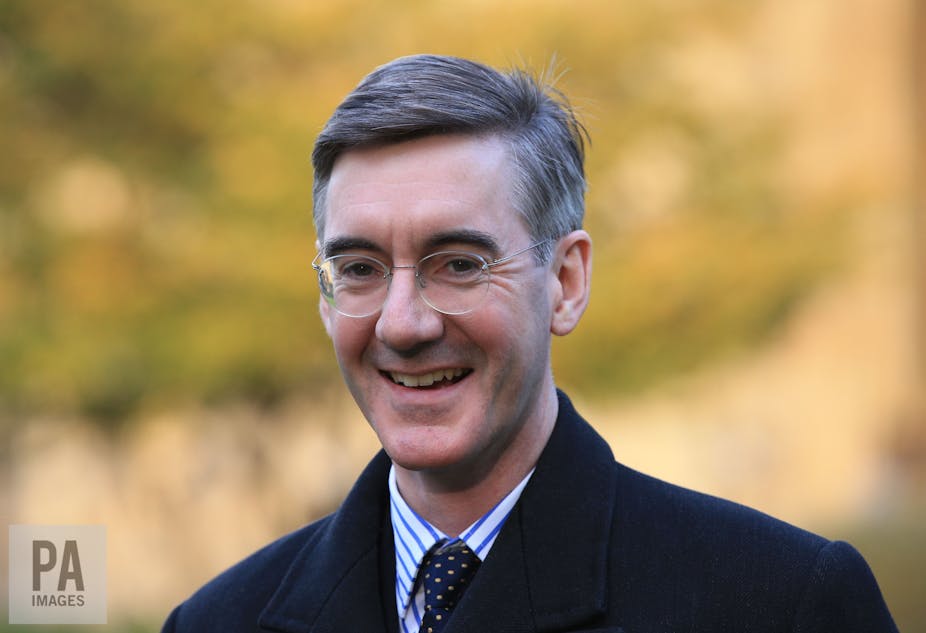In a recent appearance on the television show Good Morning Britain, Conservative MP Jacob Rees-Mogg revealed that he is totally against abortion, even in the case of rape. He claimed that this was his personal view, based on his Catholic faith, and argued that his position doesn’t matter because it has no bearing on the law of the land and nothing would change that.
This is simply not the case. Rees-Mogg is being spoken of as a hopeful for the leadership of the Conservative party – and is therefore a potential prime minister. Even if rumours of that political ambition are overblown, he is a member of the House of Commons, where he has consistently voted to restrict abortion. And, as he should well know, access to abortion is not the law of the land. In Northern Ireland, abortion is almost completely prohibited. And in the rest of the UK, it’s still a criminal offence with the threat of prison for both women and those who provide abortion unless carried out under conditions of strict medical control.
Parliamentary votes on abortion are also conscience votes – which means that parties allow their MPs to vote however they want. So when it comes to voting on this issue, Rees-Mogg’s personal opinion is the only factor at play. He, like other parliamentarians, is free to inflict his private religious beliefs on the population without hesitation – regardless of the overwhelming support for abortion across the country.
Anti-abortion legislation is frequently introduced into parliament, although it rarely gets very far. In this current session, there are two bills which seek to reduce the time limit for abortion. Conservative peer Kevin Shinkwin seeks to force women with a diagnosis of fatal foetal anomalies to carry a pregnancy to term. His fellow Tory peer Emma Nicholson seeks to restrict abortion to 12 weeks. This despite the evidence, which shows that abortion after the first trimester is rare and only usually happens when women could not have made the decision any earlier or when they faced delays accessing a procedure.
If these bills arrive in the House of Commons, Rees-Mogg’s voting record suggests he will try to change the law based on his faith position.
The role of conscience
Historically, support for the Catholic Church was viewed with suspicion or even treason in the UK as support for the “ruler in Rome”. It was seen as being in conflict with national sovereignty following the split from the Catholic Church during the Tudor period. Only in the 19th century did this begin to change, particularly with the Roman Catholic Relief Act 1829. Catholics began to regain social and political rights. Today, parliament has members from many different faiths. They routinely separate their private religious beliefs from their political activities. But because abortion is a conscience vote, it is considered differently.
The majority of British Catholics see abortion as a decision for women – in other words a personal conscience decision. Yet the Catholic Church has a history of trying to influence Catholic politicians. It has even threatened to ex-communicate politicians who vote to support abortion. With no formal separation between faith and state, and a parliamentary system which gives voting rights to faith leaders, the UK already gives significant power to religious bodies. Many people think that is undemocratic.
Abortion and women’s position
The opposition to abortion within the Catholic Church has to be understood in the broader context of its understanding of women and motherhood. Within the Catholic Church, alongside abortion, contraception is also prohibited and this is interlinked with a belief that motherhood is seen as women’s natural calling. In this line of reasoning, every occasion of heterosexual activity binds women into accepting a child if one is conceived (and whether or not it was consensual).
This understanding of women as naturally mothers who can only have sex if they accept the consequences is no longer routinely used to deny women education or employment, but is still present in the opposition to abortion. It is active in the voting record of Rees-Mogg, who has tried to restrict abortion but also voted in favour of the budget which restricted welfare benefits for families who have more than two children in July 2015. The logical consequence of this is that poorer women should just not have sex.
Women’s control over the reproduction is central to their freedom and restrictions on abortion threaten this. The lack of acknowledgment that women are more than just actual or potential mothers is also reflected in the claims by anti-abortion movements that women who choose abortion are victims of coercion. If you understand that motherhood is natural destiny of all women, this allows all abortion decisions to be called forced. But women have never accepted this position. Women throughout history have chosen abortion regardless of the legal status or religious teachings.
Where access to abortion is restricted, it can mean increased health risks including a huge number of deaths globally. This is not just a problem for other parts of the world, as a recent case in Kent has shown, women refused abortions often feel that they have little option but to try to self-terminate.
In a democratic society which purports to uphold equality, personal faith positions should not be allowed to be used to restrict the rights of others. Politicians such as Rees-Mogg are clearly entitled to their religious beliefs, but this should be kept separate from their public roles. Whether or not abortion is understood as a conscience issue is debatable, but if it is, it should be seen as a matter for the conscience of the pregnant woman alone.

